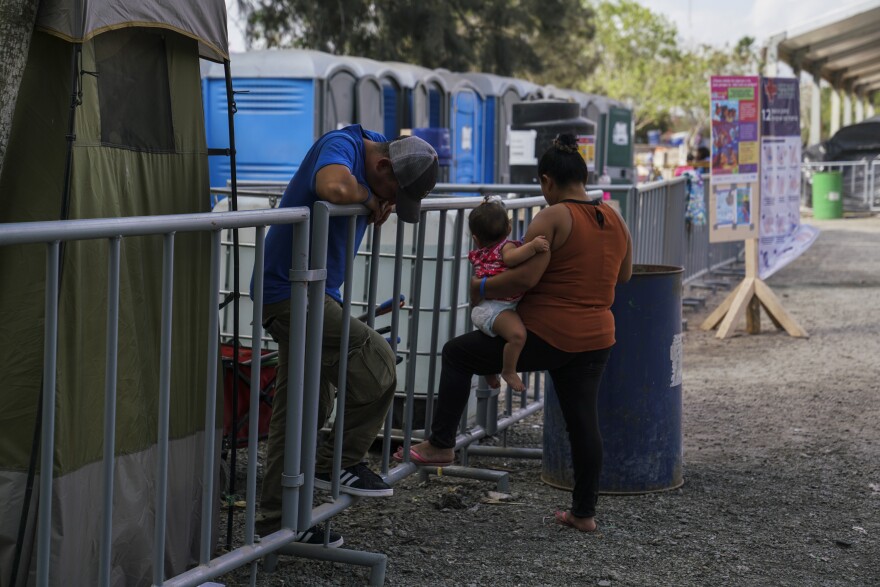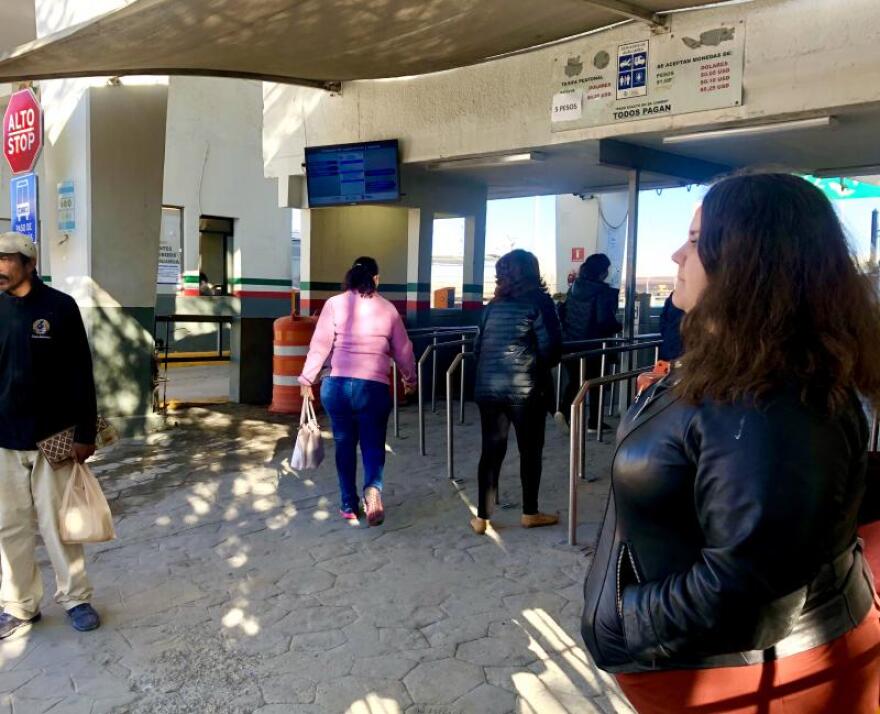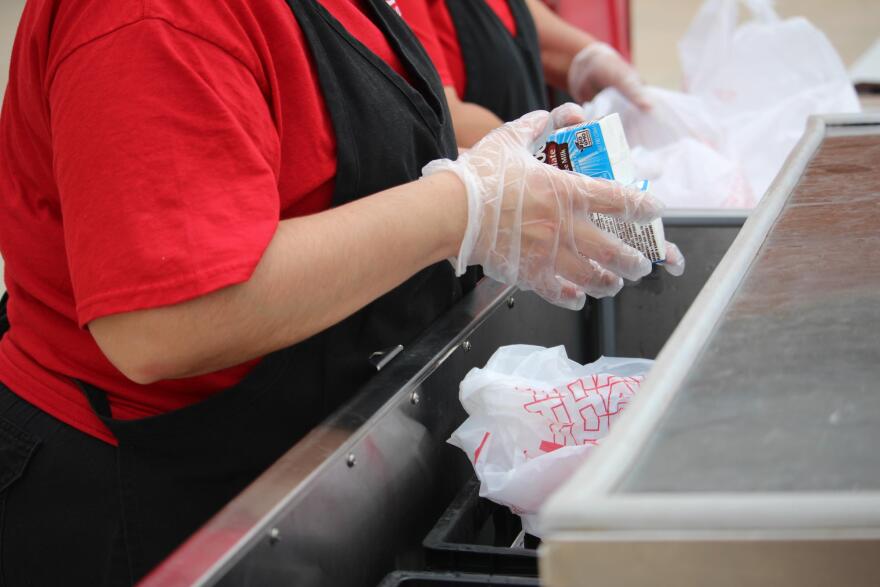Bars closing, social gatherings limited to 10 people, restaurants restricted to take-out only, visitors banned from nursing homes — COVID-19 has dramatically disrupted life in the U.S.
But life along the U.S.-Mexico border and in bicultural communities is grappling with their own set of challenges. From El Paso to the Rio Grande Valley, reporters from across the region have been examining the unexpected social, cultural and health challenges that have emerged as officials try to act swiftly to contain the spread of the coronavirus.

COVID-19 At The Border: 'If One Case Gets Into The Camp, The Entire Camp Will Have It'
Texas Gov. Greg Abbott took sweeping statewide action against the coronavirus Thursday, and warned the number of Texas cases will likely skyrocket to the tens of thousands in two weeks. Nearly 30 counties across the state have at least one confirmed case of the potentially fatal upper respiratory infection.
Just across the southern border, in the Mexican city of Matamoros, a migrant refugee camp braces for what could be a deadly outbreak. More than 1,500 asylum seekers are particularly vulnerable to the virus, as they’re exposed to the elements, have minimal access to basic hygiene products and as their asylum claims unfold in U.S. immigration courts.


Immigration Courts Remain Open Despite Coronavirus Risks
US immigration courts remain open during the coronavirus pandemic. Judges and attorneys tried to put pressure on the Department of Justice. Some hearings were postponed for migrants who’ve already been released into the U.S.
Other hearings are still moving forward for detained migrants, and asylum seekers forced to wait in Mexico.

Project COVID Care
The senior population is the most vulnerable to COVID-19. A group of volunteers in the Texas Rio Grande Valley are reaching out to assist the older population in keeping the coronavirus at bay.
John Llanes and his partner April Lopez started Project COVID Care as a way to help many of the valley's elderly in dealing with many day to day situations. The two nurse practitioners say the program has garnered some attention beyond their home base in McAllen.
Project COVID has received calls from one non-Rio Grande Valley community requesting that Llanes and Lopez bring their volunteers to different cities.
"The elderly population is so vulnerable to this virus because of their age and a lot of them don't want to leave the home," Llanes said. "So, if they call us if they need their medication picked up at the pharmacy, we'll go pick it up for them and then we'll deliver it to them. Or if they have a list of groceries they want us to go buy for them, we'll go pick up the list and so on and so forth."
Project COVID Care has received many inquiries from prospective volunteers all across the RGV. Llanes said the project will continue until the coronavirus pandemic is controlled.


Uncertain Child Care, Uncertain Jobs: The New Reality For SA Families During The Coronavirus
Schools across Texas have canceled classes during the coronavirus pandemic. Students are home and parents are struggling not only with keeping them entertained, but educated and fed.
A large number of children in West San Antonio rely on free and reduced-price school meals.
TPR’s Camille Phillips met two San Antonio families at Lanier High School where they picked up sack lunches for their kids.


Social Distancing Is Key To Slowing Coronavirus. That’s A Shock To Border Culture
Of all the directives to stop the spread of COVID-19, medical experts have said social distancing may be the most important. But it may pose the biggest challenge for borderland residents who not only greet each other with handshakes and hugs but also in some cases the customary kiss on the cheek that is popular in Mexico and other parts of Latin America.
Limiting gatherings to the recommended 10 or fewer people will be especially hard for border residents with large extended families and ties that stretch across three states and two countries.
KTEP’s Angela Kocherga reports on the challenges health authorities in El Paso, Texas, Ciudad Juárez, Mexico and Las Cruces, New Mexico are facing, as cultural traditions threaten tactics to contain the spread of the coronavirus.
Norma Martinez can be reached at norma@tpr.org and on Twitter @NormDog1 and Lauren Terrazas can be reached at lauren@tpr.org and on Twitter @terrazas_lauren.




